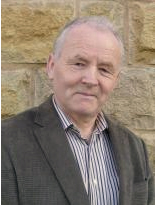
2 January 2013

On the first October of 2012 I attended a meeting held at the Eurocare office in Brussels. This was a meeting organized by EUCAM with the purpose of developing a collective strategy on alcohol marketing, to be shared and implemented by NGOs and health organizations through Europe. The meeting was attended by people from Eurocare, IOGT-NTO, EPHA (the European Public Health Alliance), APYN (the Alcohol Policy Youth Network), Active Europe and of course EUCAM.
Besides discussing some of the plans for 2013 of each organization (top secret stuff, of course…), we all agreed on striving for the mutual goal of a total alcohol marketing ban. In practice this means that we will work to achieve an alcohol advertising ban as well as a ban on alcohol sponsoring. In our definition of a marketing ban, we do not include a ban on price marketing or on Corporate Social Responsibility campaigns. We refer to what the public defines as alcohol marketing (in order to follow the rules of communication: we want to be short and clear). Another kind of wording for our desire can be: a ban for commercial communication on alcohol. In fact we want the same for alcohol as we have already for tobacco.
We all agreed that self-regulation of alcohol marketing is not functioning and that we do not support the idea that self-regulation has to be strengthened. Therefore we decided not to spend any more time in discussions about the strengthening of self-regulation. Self-regulation is an instrument of the industry to prevent statutory regulations. We will strive for improving statutory regulations (effective volume restrictions) because only these take us forward on the road to a complete ban. In other words: to a necessary protection of young people from the harmful impact of alcohol marketing and sponsoring.
If the European Commission or the industry wants to install an independent board/ commission/comity for the monitoring of self-regulation or for taking decisions about violations of the self-regulation codes, the organizations present at the meeting decided not to take part in this kind of initiatives, nor to promote these. We will simply say: “This is none of our business and we won’t spend time on it.”
Everyone agreed that it will be crucial to do things in the right order. This means it’s primarily important to put the focus on national policy change instead of European policy change. If more and more countries decide to go for a ban or for specific statutory regulations, than finally Europe has to follow. And it would seem there is currently a momentum for this.
We also came to the conclusion that we are currently missing critical data on alcohol marketing investments and data about exposure of young people to alcohol marketing. The industry is aware of the value of this data and for that reason it recently blocked the delivery of exposure data in Ireland. We will try to raise this important issue on European Commission level.
It was a pleasant and very productive meeting, not only did we learn of each other’s goals and plans but more importantly we started to band together. Even with all the public support that we already experience, health organizations such as our own are relatively small and feeble when compared to the multinational organizations we find ourselves fighting against. That’s why it’s so important for us to form a united front, put our differences behind us and communicate consistently across the board. If we can do this, than 2013 will be the year that we stand together and become greater than the sum of our parts. Now, how’s that for a new year’s resolution?
Wim van Dalen, president of EUCAM
President of the European Center for Monitoring Alcohol Monitoring
Utrecht, the Netherlands,
December 27th 2012
Want to contribute to ‘Talking Alcohol Advertising’? If you are working in the field of alcohol marketing, wheter as a scientist, policy maker, health care worker or otherwise and want to share your latest results, campaigns or discuss a subject that is currently hotly debated in your country, please contact us at eucam@eucam.info. We would love to hear from you.

